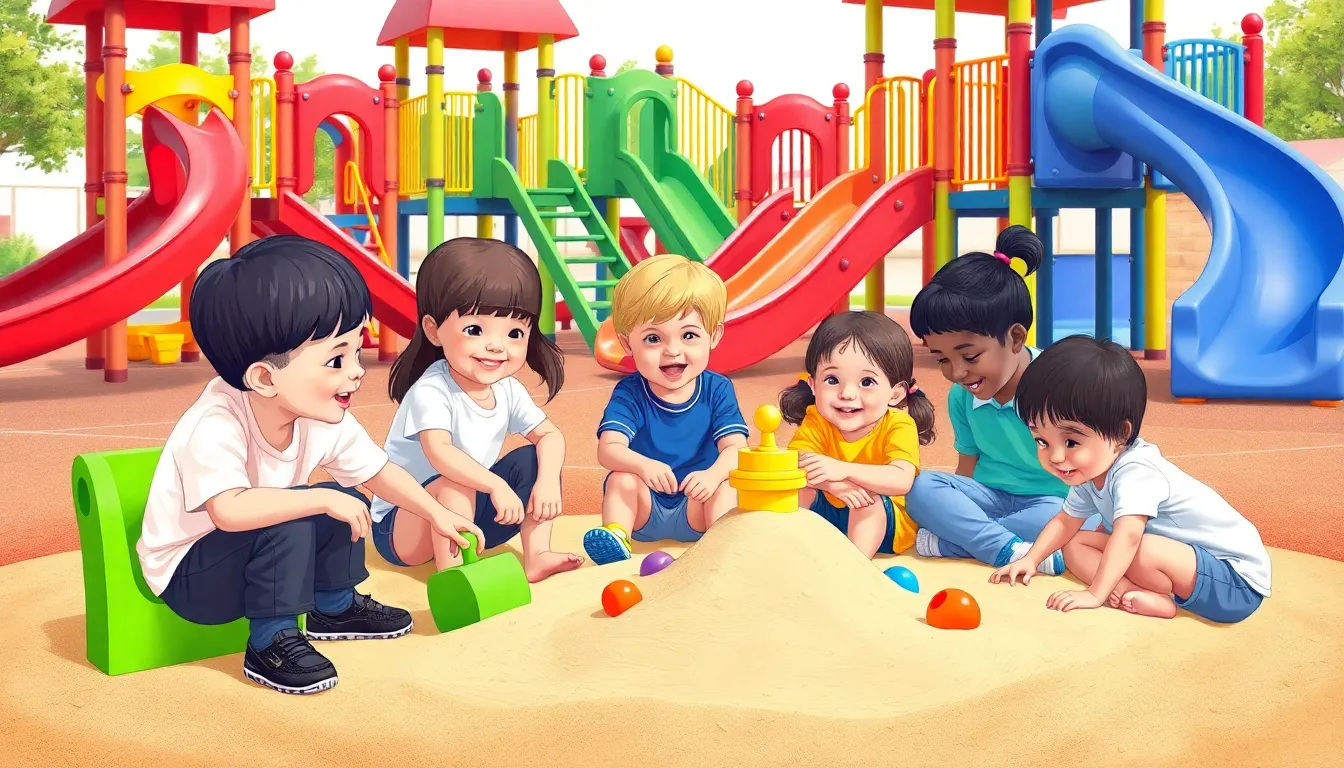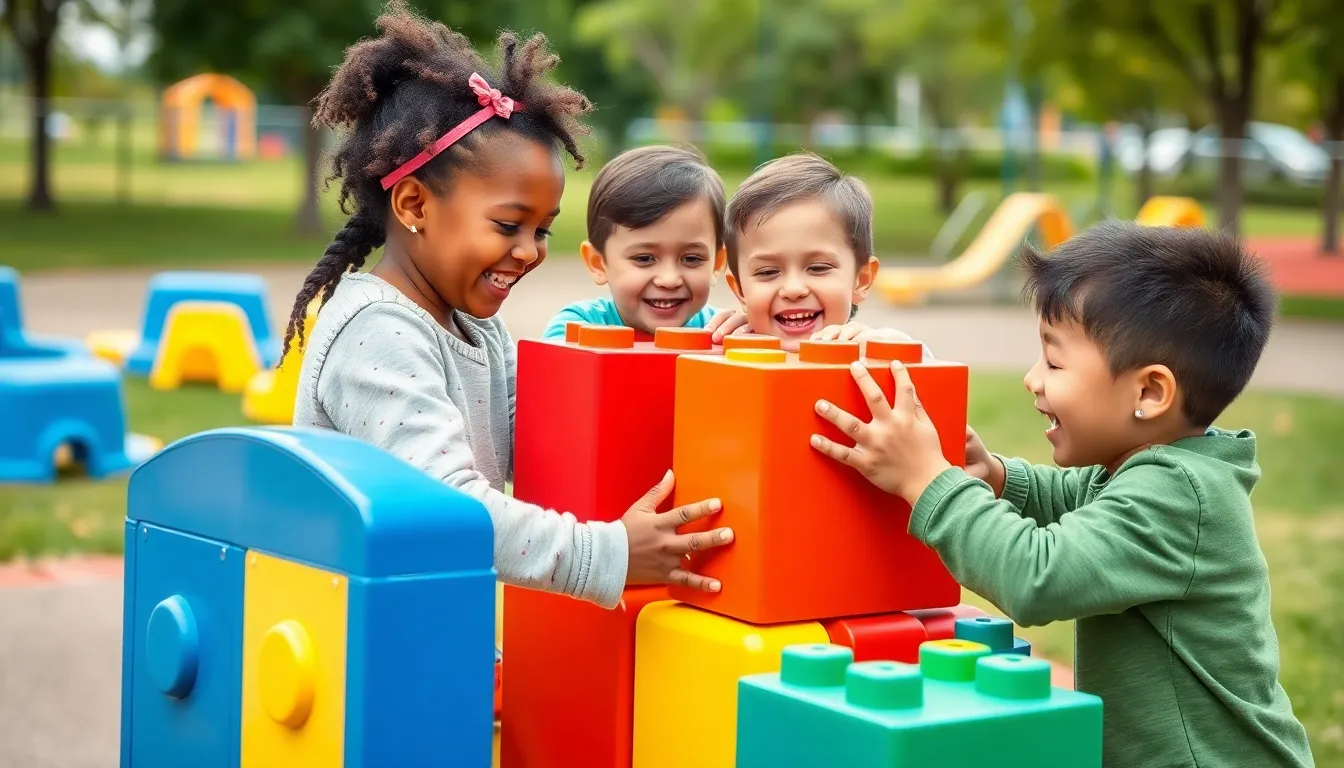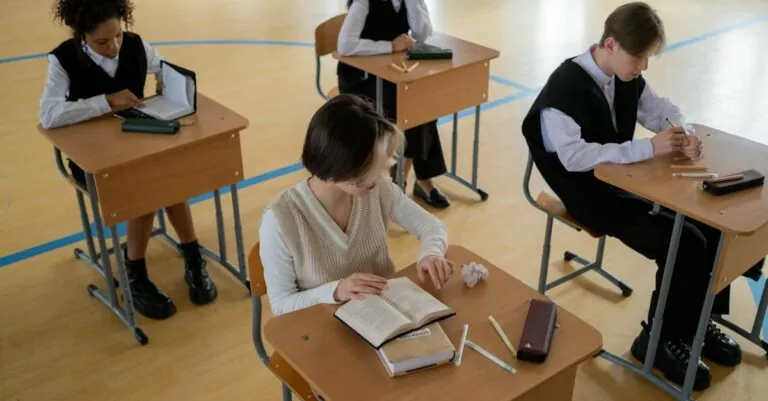Imagine a world where learning feels like a thrilling adventure rather than a chore. That’s the magic of learning through play. It’s not just for kids; it’s a powerful tool that transforms education into an engaging experience. When learning happens in a playful environment, it sparks curiosity and creativity, making knowledge stick like peanut butter on a warm slice of bread.
As it turns out, play isn’t just about fun and games. It’s a vital part of cognitive development that fosters problem-solving skills and social interactions. So whether it’s building a fort or solving puzzles, playtime is serious business. Dive into the world of learning through play, where every giggle and game is a step toward a brighter, smarter future.
Table of Contents
ToggleUnderstanding Learning Through Play
Learning through play serves as a pivotal approach in education. Play enriches the learning experience by fostering engagement and exploration.
Historical Context
Historically, educators recognized the link between play and learning. The early 20th century saw pioneers like Maria Montessori and Friedrich Froebel promoting play-based education. Their methodologies highlighted how structured play can stimulate cognitive and social development. In the 1960s, research further validated this connection, revealing that children learn best in interactive environments. Curriculum changes began to integrate play as a fundamental component of early education. Over time, this shift emphasized play as not just a leisure activity but as vital for holistic child development.
Key Theories and Concepts
Several key theories underpin the concept of learning through play. Jean Piaget’s theory introduced the idea that children learn through active exploration of their environment. Lev Vygotsky expanded on this, emphasizing the social aspect of play through the concept of the Zone of Proximal Development. Additionally, Howard Gardner’s theory of multiple intelligences highlighted the diverse ways children process information through play. These theories collectively illustrate how play supports cognitive, emotional, and social skills development, making it an essential factor in effective learning strategies.
Benefits of Learning Through Play

Learning through play offers numerous advantages that significantly enhance a child’s development across multiple domains.
Cognitive Development
Active participation in playful activities promotes cognitive development. Children engage in problem-solving while navigating challenges presented by games or imaginative scenarios. Exploration of their environment fosters curiosity and encourages critical thinking. Engaging in hands-on experiences solidifies concepts learned in traditional settings.
Research indicates that play-based learning enhances memory retention and information processing. Additionally, children often exhibit improved focus and higher academic performance when learning occurs in a playful context. Thus, play serves as a catalyst for robust cognitive growth.
Social Skills Enhancement
Social interactions during playtime teach children how to communicate effectively. They learn conflict resolution and cooperation as they engage with peers in various activities. Through group play, children develop empathy by understanding different perspectives and feelings.
Collaboration is key in interactive games, promoting teamwork and leadership skills. Moreover, playful environments often help shy children become more confident in social situations. These experiences build a foundation for strong interpersonal relationships in the future.
Emotional Growth
Play serves as an outlet for emotions, allowing children to express their feelings creatively. It provides a safe space for them to explore various emotional responses through role-playing and storytelling. This engagement fosters emotional regulation and resilience in challenging situations.
Participating in imaginative play encourages self-confidence, as children navigate their emotional landscapes. They learn to cope with feelings of fear or frustration in a controlled environment. Overall, play equips children with the necessary tools for healthy emotional development throughout their lives.
Approaches to Learning Through Play
Learning through play encompasses various approaches that facilitate effective educational experiences. Each method emphasizes interaction and engagement.
Structured Play
Structured play involves activities with specific rules or goals, offering children a clear framework for learning. Games like board games or organized sports provide opportunities for skill development. Children enhance their cognitive abilities by following rules, developing strategies, and understanding consequences. Structured environments foster focused learning while combining fun with educational objectives. Additionally, educators often plan these activities, ensuring they align with developmental milestones. Group settings, such as classrooms, amplify social interactions, which build teamwork and cooperation.
Unstructured Play
Unstructured play allows children the freedom to explore their interests without preset guidelines. Outdoor play, role-playing, and creative arts exemplify this approach, encouraging imagination and creativity. In these environments, children make choices, solve problems, and engage in spontaneous interactions. Unstructured play nurtures resilience and adaptability as children navigate challenges independently. Experiences in informal settings often lead to discoveries that structured activities may not provide, promoting deeper understanding and engagement. This approach emphasizes the importance of self-directed exploration in the learning process.
The Role of Educators and Parents
Educators and parents significantly influence learning through play by creating supportive environments. Their involvement helps children feel secure, fostering exploration and creativity. Both groups can facilitate play experiences by providing engaging materials and opportunities. Guidance during play encourages children to ask questions, explore ideas, and collaborate with peers. Educators often assess children’s progress through playful interactions, ensuring development aligns with educational goals. Parents can reinforce learning at home, incorporating playful elements into daily routines. Together, they create a consistent approach, enhancing children’s growth across multiple domains.
Challenges in Implementing Learning Through Play
Implementing learning through play presents several challenges that educators and institutions face.
Misconceptions About Play
Many perceive play as mere entertainment, overlooking its educational value. Some believe structured learning activities are more effective than play, neglecting the benefits of exploration. Others think play lacks rigor, leading to concerns about academic preparedness. This misunderstanding restricts educators from fully integrating play into the curriculum. Engaging in play-based learning fosters critical thinking and problem-solving skills, yet misconceptions hinder its widespread acceptance. Research shows children learn best when engaged in meaningful play experiences, but bridging the gap between perception and reality remains essential.
Curriculum Limitations
Curriculum limitations often obstruct the integration of play in education. Standardized tests emphasize rote memorization, which diminishes opportunities for experiential learning. Many curriculums prioritize academic content over play, leaving educators with little flexibility. Furthermore, time constraints limit the duration for play-based activities, impacting overall learning. Despite recognized benefits, balancing structured academics and play proves challenging. Schools that prioritize academic performance may overlook the holistic development that play fosters. A shift toward incorporating play within curriculums can enhance learning and development when prioritized effectively.
Embracing learning through play is essential for nurturing well-rounded individuals. By recognizing the profound impact of play on cognitive, social, and emotional development, educators and parents can create enriching environments that foster curiosity and creativity. The integration of play into educational frameworks not only enhances academic performance but also cultivates essential life skills.
As society moves forward, prioritizing play as a core component of learning will ensure that future generations are equipped with the tools they need to navigate an increasingly complex world. The commitment to this approach can transform educational landscapes and empower children to thrive both in and out of the classroom.




